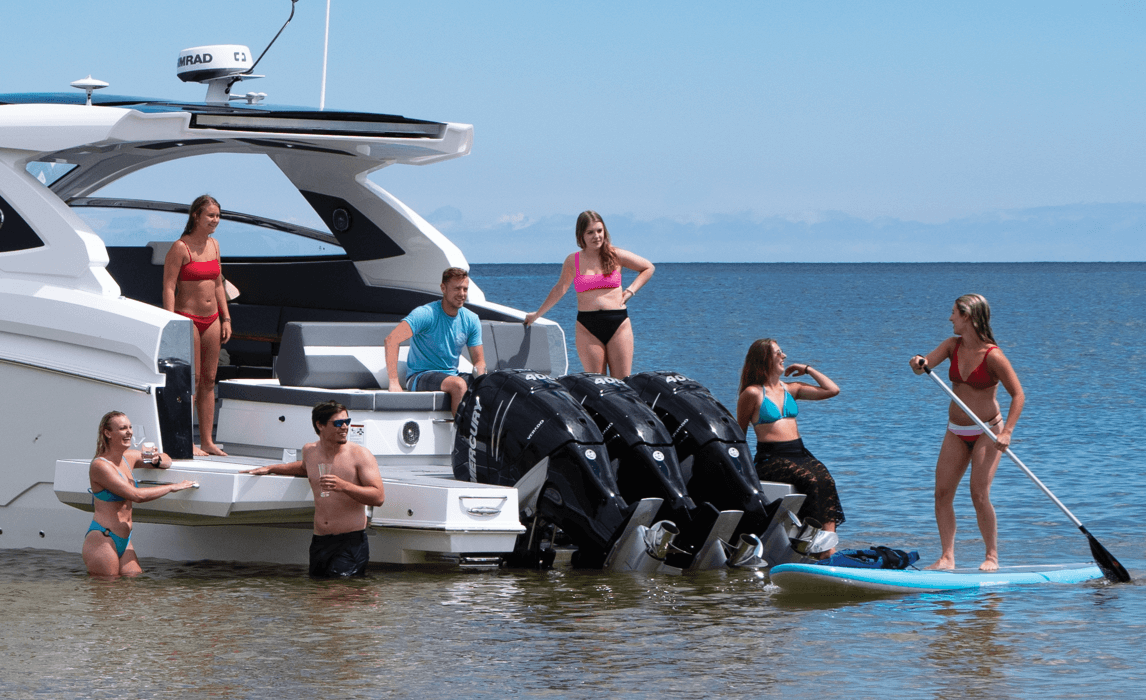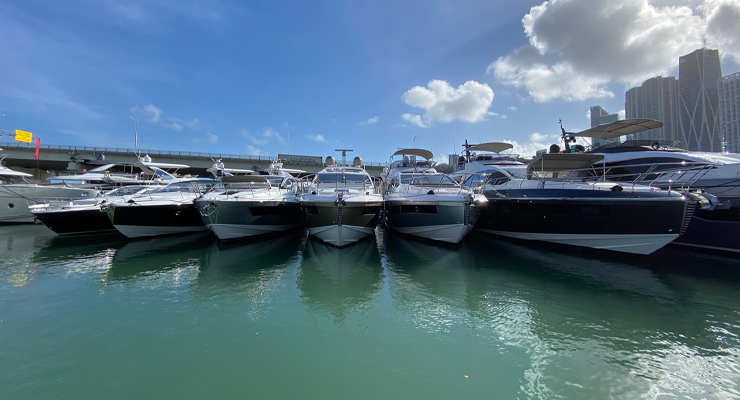NEWCOAST EXPERTISE
Filing a Float Plan for Safe Travels
As part of every flight, aircraft pilots create and file a flight plan with essential details about the plane, their route, and even the cargo onboard. This information will provide search and rescue personnel with the critical information they need in an emergency. In boating, the same procedure should apply, and as the captain, the safety of your passengers and crew should always be your top priority. One of the most critical steps you can take is to file a similar document called a float plan before leaving on every trip.
What is a Float Plan?
A float plan is a written document outlining your boating itinerary and provides details about your boat and crew. It includes information such as your destination, the route you plan to take, and the time you expect to be at checkpoints or ultimately return.
A good float plan should include the following:
- Vessel information such as name, make and model, and colors
- Critical info about passengers, such as allergies or medical concerns
- Check-in times, such as a midpoint or two and an end point
- Safety equipment kept onboard
- Vital contact information for family and friends
- Any noteworthy information, such as weather conditions or vessel issues
Filing a float plan can speed up a search and rescue effort by providing an early alert to family and friends when the boat is overdue at a planned stop or a check-in by radio or cell phone is missed.
How to Make a Float Plan Effective
One of the most critical features of a float plan is the ability to identify an overdue vessel. To make the float plan effective, leave a copy with a responsible adult you know and trust to follow any planned steps and procedures. Your main point of contact should be available to receive check-in calls and be proactive if a scheduled call doesn't happen. You can choose your primary contact from your pool of friends, family, or even other boaters. If you are friendly with several other boaters, you can have multiple contacts who can look out for each other.
The Captain’s Responsibilities
The captain is responsible for the safety and well-being of the crew and all others aboard a vessel. After a float plan is created, the captain should remain diligent in adhering to and maintaining contact with the dedicated individuals tasked with knowing the vessel's location. To recap, below are points related to this responsibility:
- An effective float plan should be left with several people who can assist if something goes wrong—especially when crossing open water, which may leave you out of contact for an hour or two.
- File or leave copies of your float plan with someone on land that will take the necessary steps to alert emergency personnel if something goes wrong.
- It is important to remember that a float plan is only effective when all parties keep to the timetable outlined and take any identified steps, such as planned check-ins by radio or phone.
- Remember that to a contact, a ‘missed call’ can be interpreted as an emergency and may push them to take action when none is necessary.
- In an emergency, your main contact should be able to identify a missed check-in call and react quickly.
- By regularly missing check-ins or deviating drastically from plans outlined in the float plan, the goal of safety decreases; therefore, it is essential for the captain and point of contact to follow the arrangements.
Returning Safely to Shore
Filing a float plan before heading out onto the water is an essential step in ensuring the safety of everyone onboard. By providing important information about your trip to family and friends, a distress call can result in a faster response, and an overdue vessel can be quickly identified, which will increase the chances that everyone onboard is found and returned to shore.
Sources:
https://wow.uscgaux.info/content.php?unit=053-08-02&category=file-float-planhttps://www.boaterexam.com/boating-resources/filing-a-float-plan/
https://www.discoverboating.com/ownership/safety/float-plan
https://www.boatus.com/expert-advice/expert-advice-archive/2020/january/why-file-a-float-plan
https://floatplancentral.cgaux.org/

insights
Finding the Right Boat or YachtNEWCOAST EXPERTISE Finding the Right Boat or Yacht for You? With Newcoast by your side, findi...
Learn More
expertise
How to get the best interest rateNEWCOAST ADVANTAGE How to Get the Best Interest Rate If you're looking for the best rates an...
Learn More
insights
Boat Show TipsNEWCOAST DIFFERENCE Headed to a Boat Show? So many boats and yachts all in one place! Shoppi...
Learn More
expertise
Understanding Your Credit ScoreNEWCOAST EXPERTISE Understanding Your Credit Score Have you been considering a loan to purchas...
Learn More